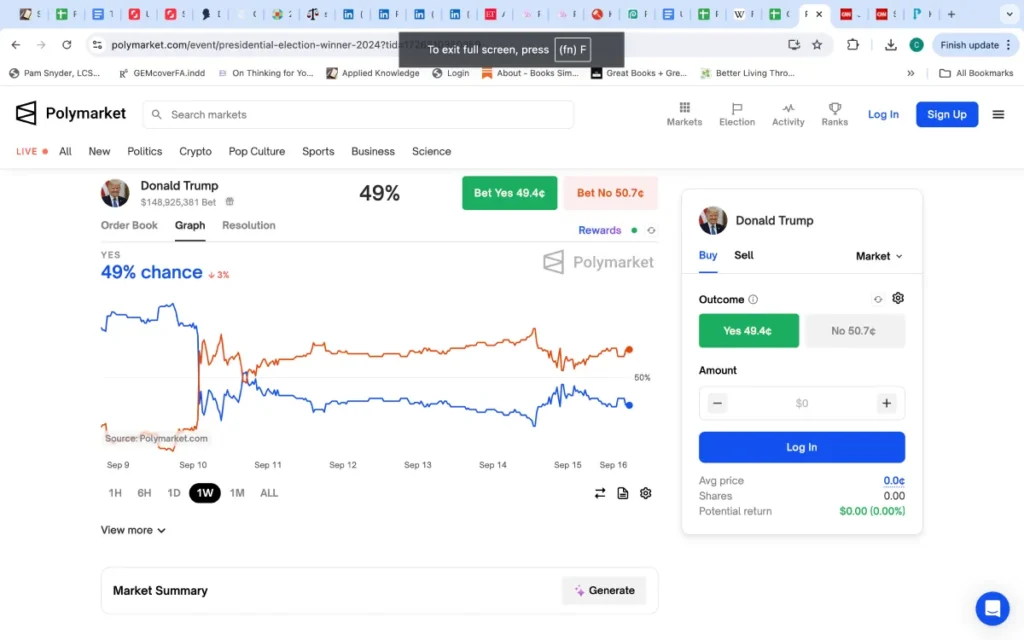On Sept. 15 at 1:30 p.m. ET, Palm Beach County Sheriff Ric Bradshaw was notified that the Secret Service had fired at a suspicious person. The Secret Service had thwarted the second assassination attempt on Donald Trump.
Trump and the donor he was with, Steve Witkoff, were unharmed. There was little movement in prediction markets. Aside from some slight volatility in the next few hours, Trump’s Polymarket price on his election victory remained at 49 and 51 for “Yes” and “No” respectively. Harris’ victory price on PredictIt hovered between 57 cents and 56 cents before stabilizing at 57 cents.

Trump’s election odds were somewhat volatile, but the market’s prediction remains largely the same after a shooter was discovered at Trump’s golf course.
Political violence has become increasingly common in the last few election cycles. The Jan. 6 attack on the Capitol, the attack on Paul Pelosi, and the shooting of the former Republican Minority Whip all occurred between 2017 and 2022. The Trump shootings are a continuation of a troubling trend.
Political Violence in the United States
The United States has survived waves of political violence in the past. Between 1963 and 1968, assassins killed John Kennedy, Robert Kennedy, and Martin Luther King Jr. In the following decades, George Wallace and Ronald Reagan survived their own assassination attempts.
1968 was an exception in an era of low political polarization. After World War II, the Democrats and Republicans overlapped on key economic issues and both parties were home to a range of liberal and conservative viewpoints.. The large changes in civil rights and the revealed deception of the Vietnam War culminated in a violent election year.
In their book Four Threats, Suzanne Mettler and Robert Lieberman point out that Americans tended to be less polarized than Europeans because:
“…American society tended to generate ‘cross-cutting cleavages,’ meaning multiple, overlapping ties that reinforce connections among citizens instead of a single overarching divide between them, as was the case in European countries, which were more often riven by overriding conflicts of class, religion, or language.”
Today, Americans sort themselves so their identities and political positions intertwine. For example, white Evangelical Christians are overwhelmingly Republican. Someone who supports government action against climate change is also likely to support a slate of left-leaning positions.
Trump’s second assassination attempt didn’t move prediction markets, both because he wasn’t harmed and because this type of political violence is less shocking. While it may unite his base, this second shooting has been priced into American election markets.















